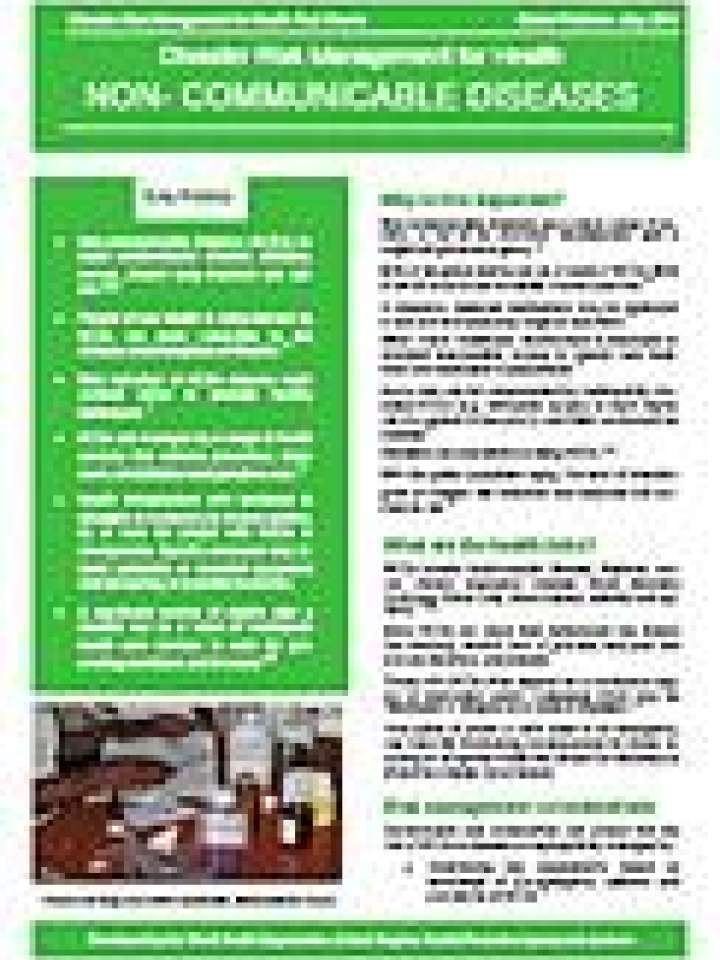Disaster risk management for health: non-communicable diseases
This fact sheet about non-communicable diseases in disaster risk management for health is divided into four sections: i) Key points ii) Why is this important? iii) What are the health risks? iv) Risk management considerations.
Non-communicable diseases key points are:
- Non-communicable diseases (NCDs) include cardiovascular disease, diabetes, cancer, chronic lung diseases and others.
- People whose health is compromised by NCDs are more vulnerable to the stresses and disruptions of disaster.
- Risk reduction of NCDs requires multi-sectoral action to promote healthy behaviors.
- NCDs are managed by a range of health services that address prevention, treatment, rehabilitation and palliative care.
- Health infrastructure with resilience to disasters is necessary to ensure continuity of care for people with NCDs in emergencies. Specific measures may include protection of essential equipment and stockpiling of essential medicines.
- A significant number of deaths after a disaster are as a result of inadequate health care services to cater for pre-existing conditions and illnesses.
